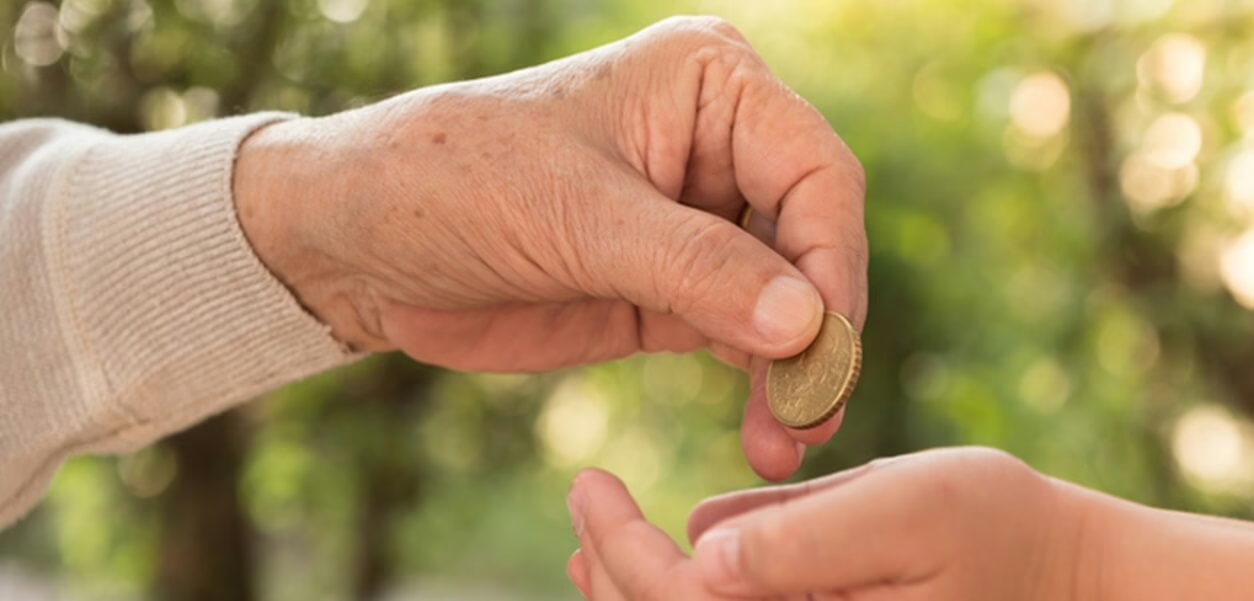
We enjoy receiving member questions for a range of reasons. The main one is because our whole team wants to help Australians maximise their retirement income and answering tricky questions is one way of doing this. But another reason why we value the many thousands of member questions that we receive every year is because we learn so much about the things that concern Australian retirees and the rules which seem overly complex.
The definition of what is and is not an asset is a case in point. This is a question that we are asked in just about every iteration that you can imagine. There’s a reason for that. It’s because whilst an asset can be defined, the way it can affect your Centrelink entitlements can vary. Put simply, some assets matter more than others. Some are assumed to earn you benefits and others are not. And the rules behind these assumptions are not necessarily logical.
Your family home
Take, for instance, the family home. This is, for most Australian retirees, the single biggest asset they have in retirement. This is because the median value of the home nationally is $912,000. This amount dwarfs that of median super balances in 2023 for those entering retirement, aged 65-69, which are:
Male $213,986
Female $201,233
(ASFA Update on Super Account Balances 2023)
But interestingly, despite most older Australians holding hundreds of thousands of dollars in their homes, Centrelink considers the home to be an exempt asset, meaning that it is not evaluated for the assets test, nor is it deemed to earn income and so it is not evaluated for the income test either. It’s clear that your home does not ‘earn’ an income (unless rent is received, in which case it would have to be declared). But over time the value of the family home does generally increase and this gain is not seen as additional income by Centrelink either. Additionally, when and if you sell your family home it remains an exempt asset* for Capital Gains Tax (CGT), so again any growth in value is yours in its entirety.
It’s for this reason that it is important to appreciate the value of the family home as an asset that is practically ‘untouchable’ when it comes to Centrelink.
(*as long as you move in soon after you acquire it)
What about your other assets?
Apart from your home, your personal assets means anything that an individual or household owns in their own name, or joint names. This might be in the form of money, investments, cars, insurance, works of art and more.
As noted above, Centrelink assesses your Age Pension eligibility in two ways using both an income and an assets test. The critical point is that some assets count towards the assets test only, and others are taken into consideration for both the assets test and are then also deemed to contribute towards your total income.
Financial Assets
Let’s consider financial investments, which are both assessable and mainly deemable. These are financial assets which will be assessed by Centrelink in order to establish whether you meet the required assets threshold for the Age Pension. Most of these assets are also deemed to earn income, which will be used in your income assessment for the Age Pension as well. Such financial investments include:
- Cash on hand
- Bank accounts
- Term deposit accounts
- Managed investments
- Shares and securities
- Superannuation
- Annuities and income streams
- Some gifts or loans
- Equity in a company
What about more personal assets?
These are those assets which are not deemed but can still be assessed under the assets test.
Such assets include
- Home contents (including furniture and appliances)
- Personal effects (including jewellery, laptops)
- Licences (taxi, commercial etc)
- Surrender value of life insurance policies
- Collections
- Motor vehicles, caravans, boats
All assets must be declared on any Age Pension application. Those who already receive a government benefit are required to update Centrelink within 14 days of a change of asset values.
The tale of Aunt Susan’s sofa: Beware this common error
The actual value of your items is their market value. That means the value if they were to be sold in a garage sale tomorrow (as opposed to replacement value for insurance purposes). What would they really fetch? Most people do not have more than $10,000 of furniture and personal effects – but many will declare a sentimental value which is much higher, on their Age Pension application. This can end up costing them money as it could reduce their Age Pension entitlements. This happened with a friend’s aunt’s sofa which was a much admired family possession. But when Aunt Susan moved to an Age Care residence and her niece decided to store it, she added what she believed to be the value of this antique walnut and velveteen chaise lounge to her contents declaration– a hefty extra $20,000. The sad truth is that while everyone in the family loved this piece of furniture, they would be lucky to fetch even $500 for it on Facebook Marketplace. So-called ‘brown’ furniture is no longer in vogue, in fact many op shops can’t even give this type of furniture away. So it’s important to be less emotional when it comes to the value of your goods and chattels and think hard if the whole lot really would exceed the generally accepted norm of $10,000?
What about depreciation?
Another common misconception is that Centrelink will update your assets declaration with annual depreciation. It does not. You will need to do this. It can be a very worthwhile exercise because, if, say, your computer depreciates, so your assets will reduce. As long as you report this, you might then qualify for a higher pension payment. This happened with Tom who had failed to revalue his old Corolla. It might not be a huge difference but every little bit helps. Another example is bank account balances where spending a few thousand dollars on that dream holiday or a renovation could improve your Age Pension payments. You will only benefit, however, if you make the effort to update this information with Centrelink.
There’s a lot to understand when it comes to defining assets and income for Centrelink, in which case an Age Pension consultation may be helpful.
Alternatively, you may wish to consider the mix of entitlements and how your super works in a Maximise entitlements consultation with one of our trusted advisers. Above all else, be sure to try to understand the rules which apply in your own situation and how you can use them to greatest advantage.
More on assets from Services Australia.
Do you, too, tend to place a high emotional value on your assets? It’s difficult not to, but there are clear advantages from a more pragmatic approach.






my mum has a unit rent out for 580 a week live with me .now my mum are eligible to age pension we haven’t apply yet ,we need to your advice how we do to maximise her pension, I can book consultation.
Hi Jing, please CLICK HERE to book a consultation.
Is the driveway and fence considered as exempt along with the house?
My driveway is in need of repair / upgrading due to the heavy rains over the past several months?
Hi Peter, thanks for raising your concern! Yes you can spend money on repairs to your driveway and fence without concern so long as your total property size is under 2ha. If you live on a property +2ha than only the house itself and the surrounding 2ha are exempt from the asset test. Changes that would improve the value of the property outside of the 2ha exempt area could impact your pension.
The article hasn,t covered other property (non income producing) re its valuation and treatment of outstanding mortgage.
We’ve lived on a 37.5 acre hobby farm for 19 years and 4 months. I’ve heard that at 20 years the property will all be considered our family home. My wife receives a Centrelink pension. Will this change her assets in relation to her pension at 20 years, and how will it impact her payments (if at all?)
Hi Steve, great name by the way, thanks for your query. There are a couple of aspects to how this rule works so it is difficult to answer in this forum. It would be best to speak with you in a confidential, 1v1 consultation. Please CLICK HERE to make a booking.
Good morning Team,
How can I claim my age pension benefits….being seperated from my husband, but living under the same roof due to financial circumstances and housing shortage and expenses.
With thanks
Marie
Hi Marie, thank you for your query. You can apply for the single pension because although you live with your ex you are no longer in a relationship with them. We can help you lodge your claim via a PHONE APPLICATION or you can apply directly through Centrelink.
Gifting is really confusing. You mentioned that only some gifts or loans will be considered as deemed income. Loans is fairly straight forward, but are donations considered gifts? I get gifts to family members, where they get repaid in hugs and being able to reading stories to grandkids, but what about donations to –
– our church
– support a child in crisis
– charities like Epilepsy Aust, Royal Life Saving, RFDS, Fred Hollows and so forth
– support overseas literacy in needy countries
– emergency relief in disaster / war areas?
Hi Niel, yes those types of payments you suggested still fall into the category of gifting because it is effectively money that you could have kept to support yourself rather then ‘gifting’ to others. This is why Centrelink has an allowable amount that can be gifted without penalty to allow for situations such as you have mentioned.
My defacto ex partner and I do not share income. He is still living in my home as it seems he can’t find any where to rent. He contributes only to food. We are definitely not in a relationship anymore- still friends but until he finally moves out do I have to declare his assets when seeking Centrelink aged pension?
HI Liz, Centrelink do recognise these kinds of situations and refer to them as “Separated under one roof”. There is a particular form both you and he will need to complete to show Centrelink that the relationship has ended and you are now only living together as friends. If Centrelink accepts this then they will assess you as a single person based on only your own income and assets.
Can you please clarify deemed and assessable Assets, I understood that Caravans were not deemed or assessable, you say they are not deemed BUT may be assessable. Under what conditions would they be assessable please?
Hi Bill, a caravan would be exempt if it was your primary place of residence, otherwise it will be assessable as an asset.
Are hearing aids classed as an asset?
Hi Kylie, generally speaking no, hearing aids would not be considered an asset.
I am applying for aged pension & I have noticed a caravan is included as an asset separately. This does not show on my husbands aged pension assets as a caravan but was included in personal assets. He has been on the aged pension for many years & we can’t recall why this was overlooked, we did have help with his application from a Centrelink officer. Should he correct this before I apply for the pension. I doesn’t change the value of assets overall.
Hi Kay, great work proactively noticing the discrepancy. The good news is that if the total value is still accurate then whether it all be in personal assets or split between the two is not crucial. Personal assets and caravans are assessed the same way. For accuracy’s sake it would be better to reduce the personal assets and declare the caravan for it’s value separately.
Good morning Steven,
I’m on Centrelink benefits. I’m going to download some superannuation to replace my 40 yr old chipboard and laminex kitchen, as well as my broken old oven. Are these assets to declare?
Hi Catherine, yes you should show Centrelink statements for your super and bank accounts as well as some of the receipts for the work you are getting done. This way Centrelink can update the balances of your assets, recalculate your pension (if need be) and know that you spent the money on expenses as opposed to re-investing it elsewhere.